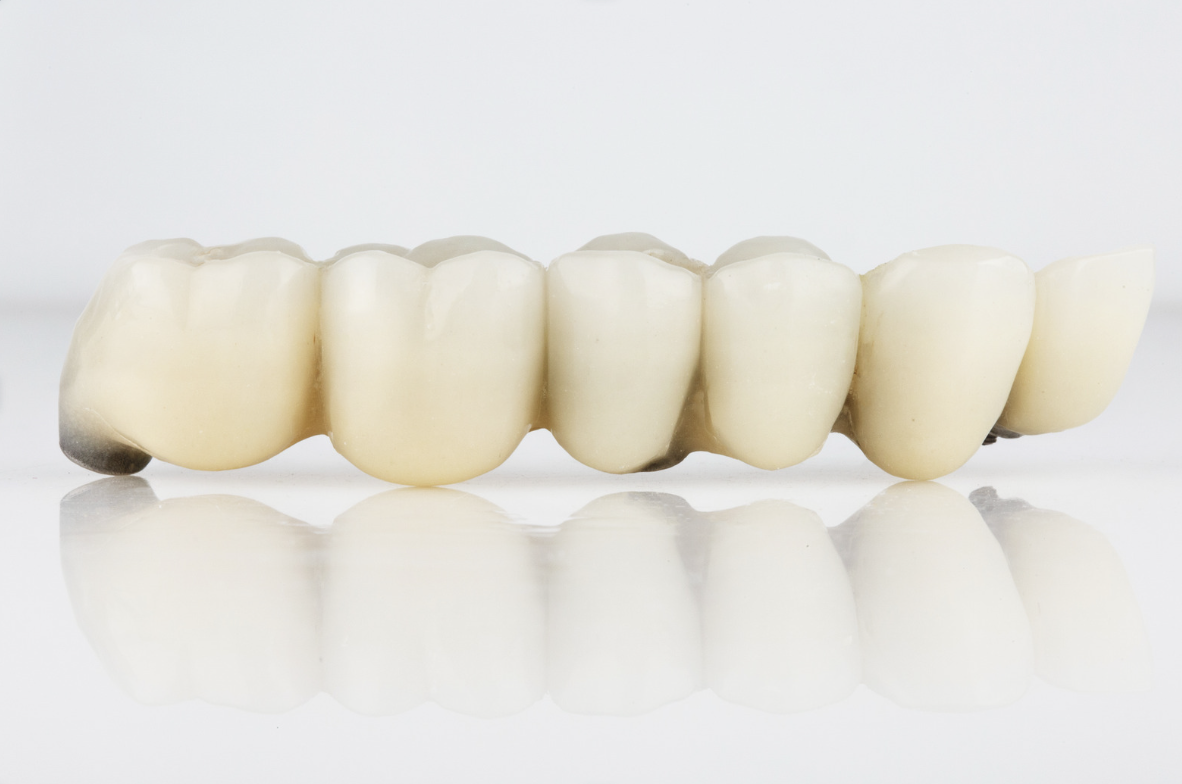Dental Bridges
Missing teeth are not only aesthetically unappealing, but the absence of teeth can also lead to certain oral health problems and bite misalignment. There are several ways missing teeth can be replaced, dental bridges being one of them.
To schedule a consultation to find out if dental bridges may be a good option for restoring your smile, please call NYC Smile Design at 212-452-3344. Dr. Elisa Mello and Dr. Ramin Tabib serve patients in New York City and the surrounding areas.
Dental Bridges to Restore Your Smile
These devices work by bridging the gap left by a missing tooth. Using the surrounding teeth for support, the dental bridge holds a replacement tooth in the gap. The replacement tooth is supported by dental crowns on either side, which are placed over the surrounding natural teeth. The result is an aesthetically pleasing replacement tooth system that is also durable and strong because it is anchored to your teeth.
The only way to know which tooth replacement system will work best for you is to visit our dentists for a consultation. There are a number of restorations that may be a good option for your goals and expectations, including dental implants or an implant-supported dental bridge.
Why Choose a Dental Bridge?
Each tooth replacement option has its own advantages. Dental bridges, for instance, are the treatment of choice for some patients because of the following benefits:
- Convenience of a fixed appliance means you do not have to remove it each night like removable dentures
- Anchor to other teeth provides a stable, secure appliance for eating, speaking and laughing
- Restores an aesthetically pleasing smile
At NYC Smile Design, our experienced dentists regularly use dental implants to make dental bridges even more secure. For an implant-supported bridge, the tooth crowns are attached to dental implants instead of natural teeth. For this reason, this type of dental bridge is used when two or more teeth are missing.
Who Is an Ideal Candidate for Dental Bridges?
If you are missing one or more teeth, you may be a good candidate for a dental bridge. It is important to have healthy adjacent teeth for support of the bridge or to have sufficient jawbone density for an implant-supported bridge. Gum disease and certain oral health conditions may impact candidacy and should be addressed before your bridge is placed.
How Long Does It Take To Implant a Dental Bridge?
Dental implants may take one to two hours each to place. This will be necessary if your dental bridge is to be supported by dental implants. A traditional dental bridge may take one to two hours to place as well, depending on factors unique to your smile. The best way to determine how long it may take to have your bridge placed is through a one-on-one consultation at our comfortable Manhattan office.
What is Recovery and Aftercare for Dental Bridges Like?
Recovery from a dental implant may take several months, though the process is different for every person. Swelling, bruising, and some discomfort are possible during the first few weeks of implant placement. This is dealt with through cold compresses, medications, and rest.
Traditional dental bridges, affixed to adjacent teeth, will not require a recovery period. They will, however, necessitate an adjustment period as you acclimate to the new size and shape of your bite.
During the recovery process, you must follow all of the instructions provided by our office to help reduce risks and ensure the most comfortable and rewarding experience. We will discuss this in greater detail during your time in our care.
How Long Does It Take for a Dental Bridge to Feel Normal?
It may take one to two weeks to fully adjust to your dental bridge. After this adjustment period, your bridge will be all but unnoticeable.

How Do You Care for a Dental Bridge?
Dental bridges are cared for in the same manner as your natural teeth with a few fairly important exceptions.
Do:
- Use a soft-bristle toothbrush to brush after every meal and snack
- Floss at least once daily
- Visit our office every six months for cleanings
Do Not:
- Use abrasive toothpaste (baking soda, charcoal, etc.)
- Bite ice or hard candy
- Chew non-food items like pens
We will provide clear and easy-to-follow instructions after placing your dental bridge to help ensure both your restorations and your natural teeth retain their function and beauty for years to come.
Will I Need to Change My Diet and Eating Habits After Getting Dental Bridges?
A dental bridge should be able to restore full bite strength and function to your smile. You will not need to change your diet after having a dental bridge placed.
It is best to avoid biting hard candy and ice to prevent chipping or cracking one of your restorations, and you may want to reduce your intake of staining foods and beverages to help preserve the appearance of your crowns, but most eating habits will have little to no impact on your dental bridge. We will provide you with information about which foods you may want to avoid to help ensure you get the most out of your dental restoration.
Call NYC Smile Design for your Dental Bridge!
To schedule a consultation to learn more about your teeth replacement options at NYC Smile Design, please call our helpful team at 212-452-3344. Or, you can fill out the form in our contact page, and our office will assist you with setting up your appointment. The experienced dentists and dental team at NYC Smile Design serve all of Manhattan, New York City and the surrounding areas.

